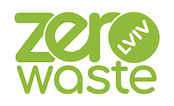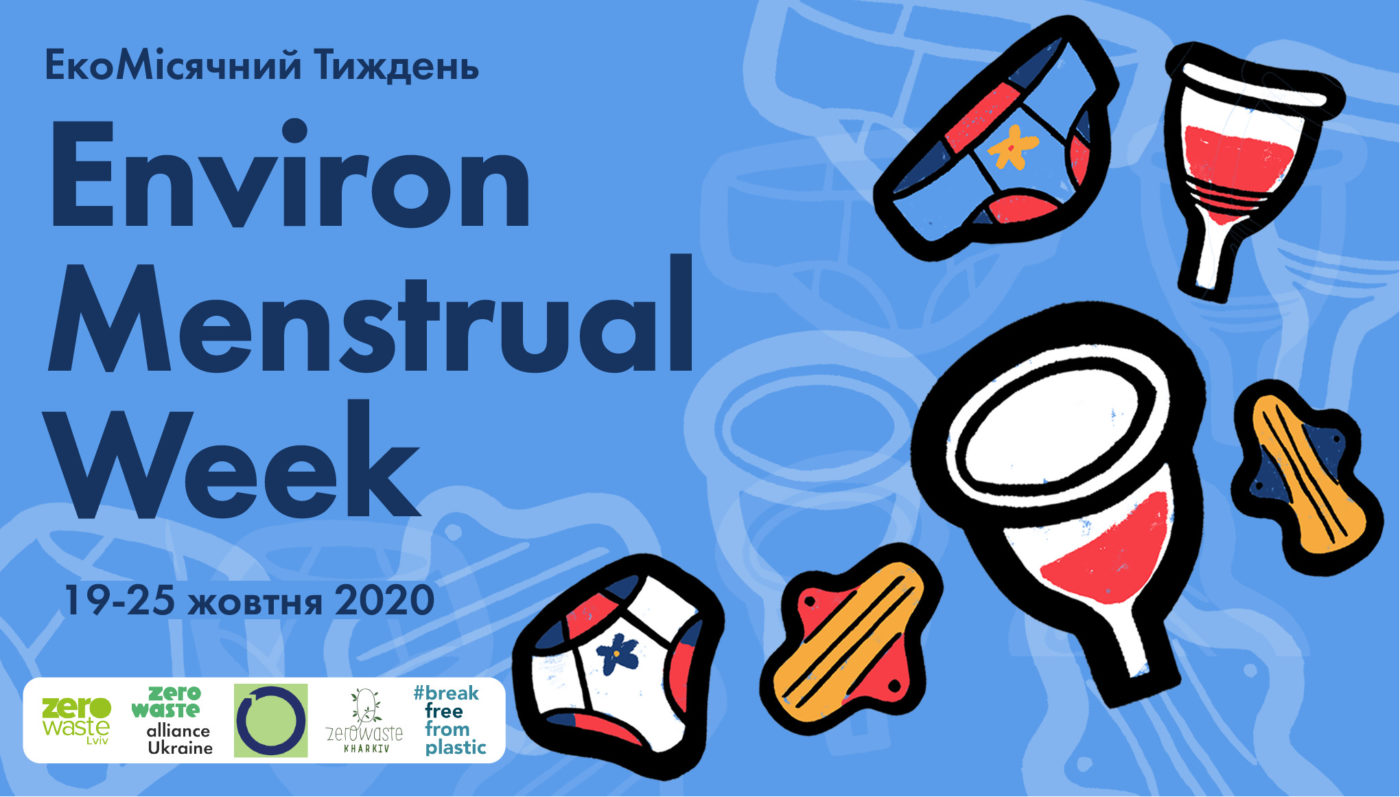The most anticipated campaign this fall, EnvironMenstrual Week, will run from October 19 to 25 this year.
#Environmenstrualweek is an international campaign that has been running around the world since 2018 and aims to actively raise the issue of various aspects of menstruation, including highlighting the dangers of disposable menstrual products and their impact on women’s health and planet pollution.
This year the campaign in Ukraine under the auspices of Zero Waste Alliance Ukraine is coordinated by the public organization Zero Waste Lviv.
Projects within the framework of the EnvironMenstrual Week:
- Development of information stickers for public toilets and toilets of food establishments, through which we will recommend the use of reusable menstrual products.
We plan to distribute these stickers in Lviv, Kyiv, Kharkiv and other cities, and we encourage you to join the distribution of the stickers.
This requires:
- Agreement with public institutions (cafes, restaurants, libraries, etc.) to stick a sticker in their premises.
- Capture on a photo/video the presence of the sticker in the institution.
- Let us know the number of institutions where the stickers were applied.
We may pass or send the stickers to you by mail, or you may print and distribute them by yourself.
- Preparation of informational posts from the pages of Zero Waste Lviv, Zero Waste Alliance Ukraine and the pages of our partners.
- Active coverage of the campaign in national and regional media.
“Speaking about the impact of disposable menstrual hygiene products on the environment, it is very important to remember the full production cycle of pads, tampons, etc. Polymers, adhesives, various fragrances and dyes that are harmful to the environment are used to make disposable pads. Another important aspect of the negative environmental impact is the generation of waste. Disposable menstrual hygiene products make up about 4% of the contents of a mixed waste trash bin (including diapers), they are very difficult to recycle, respectively, it makes no sense to organize a separate collection of this type of waste. Instead, it is important to choose multiple-use alternatives that are not only safer for you and nature, but also more economically viable,” says Sofiia-Yuliia Sydorenko, coordinator of the EnvironMenstrual Week campaign in Ukraine.
We encourage both organizations and institutions, as well as individuals, to join the campaign.
If you also want to be a part of EnvironMenstrual Week, please contact the Campaign Coordinator:
If you represent the media and want to cover information about the campaign, please write to our Communicator:
For information:
You can learn more about multiple-use feminine products at the link: https://zerowastelviv.org.ua/en/zero-waste-period/
International study on the impact of disposable menstrual products on environmental pollution and women’s health is here: https://zerowastelviv.org.ua/wp-content/uploads/2021/04/bffp_single_use_menstrual_products_baby_nappies_and_wet_wipes.pdf


 UA
UA